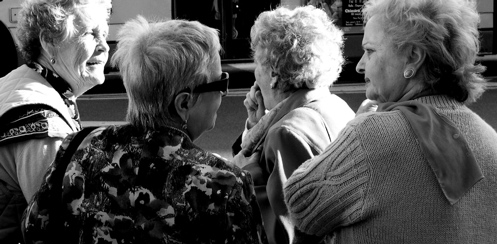Healthy systems
In pursuit of universal health coverage, Tedros Adhanom Ghebreyesus, director-general, World Health Organization, calls for effective systems to address health issues arising from climate change and misinformation – all while providing for ageing populations
Mahatma Gandhi said that, “It is health that is real wealth, and not pieces of gold and silver.”
Health is the most precious commodity on earth. With good health, individuals, communities and nations flourish. Without it, productivity and economic growth stall, exclusion and inequality grow, and dreams die.
The Sustainable Development Goals represent an ambitious vision of the healthier, safer, fairer world we all want. Health is represented predominantly – but not solely – in SDG 3, which exhorts countries to “ensure healthy lives and promote well-being for all at all ages”.
It targets all countries achieving universal health coverage by 2030. When all people can access the health services they need without experiencing financial hardship, the foundation is laid to achieve all the other targets on reducing specific causes of death and disease.
Universal health coverage is also the best defence against outbreaks and other health emergencies. The current Ebola outbreak in the Democratic Republic of the Congo demonstrates how weak health systems can spread disease.
But it also shows that health security is not just a health issue. We know how to stop Ebola, but insecurity and widespread mistrust undermine our efforts to reach people with vaccination, treatment, and infection prevention and control messages.
This underlines a key feature of the SDGs: they are integrated and indivisible. None can be fully realised without the others. Just as we cannot end Ebola without improving security, so achieving the SDG health goal will either contribute to or depend on achieving almost all the other goals.
The environment link
Health and well-being for all cannot be achieved without addressing climate change. The combustion of fossil fuels, a main driver of climate change, means that more than 90% of the world’s urban population now breathes harmful air, causing more than four million deaths annually. Air pollution is also expensive: the health impact exceeds 4% of global gross domestic product.
More frequent and intense storms and floods will also increase the transmission of infectious diseases and affect food security. People in small island developing states and least-developed countries are at greatest risk, although they are the least responsible for climate change.
Anti-microbial resistance also knows no borders, and no single country or agency can solve it. Only a global, one health approach can bring about the multisectoral, integrated action required to meet this growing, complex danger to humans, animals and agriculture.
Rapidly ageing populations pose special challenges to many countries. Seven in 10 people over age 60 live in G20 countries. As people live longer, it is critical to be able to meet their health needs so that long lives can also be healthy and fulfilling. But we must see ageing as an opportunity, not a challenge.
Although all these issues present as health challenges, none can be adequately addressed by ministries of health alone or by a single United Nations agency. All require a coordinated, multisectoral response.
So the World Health Organization has joined forces with 11 other partners to develop the Global Action Plan for Healthy Lives and Well-Being for All, a coordinated strategy to leverage the reach, experience and expertise of the global health community to accelerate progress towards SDG 3.
This year, the G20 can play key leadership roles in each of these areas.
First, many G20 countries are standard bearers for universal health coverage, while others are in the vanguard of a new wave of countries making bold strides towards it. The attendance of G20 leaders at the High-Level Meeting on Universal Health Coverage this September would be a strong statement of that leadership.
Second, as the largest contributors to climate change, G20 countries are uniquely placed to lead a clean energy revolution that will pay enormous dividends for both development and health.
Third, we call on the G20 to invest in global health security, through the UN’s Central Emergency Response Fund and the World Bank’s Pandemic Emergency Financing Facility. A minimum operating balance for WHO’s Contingency Fund for Emergencies is critical to ensure that WHO can always act early in an emergency.
Fourth, with respect to AMR, we urge the G20 to support the Tripartite Multi-Partner Trust Fund so critical activities, such as national action plans, surveillance and limiting anti-microbials used for growth promotion in animals raised for food, can be implemented in priority countries.
Fifth, the G20 can lead on the challenges and opportunities of ageing populations by supporting the Decade of Healthy Ageing from 2020 to 2030, so we meet the health needs of older people while benefiting from their decades of experience and knowledge.
Strong G20 support for each of these urgent global health issues could not only transform the health of billions of people, but also drive progress towards a more sustainable and prosperous future – for everyone.












